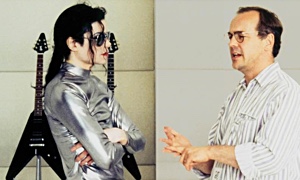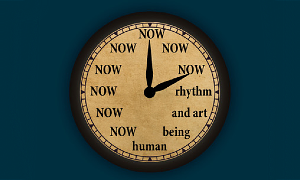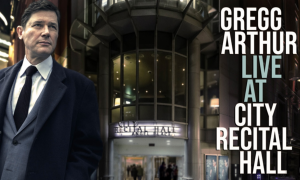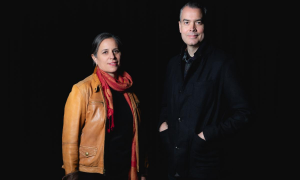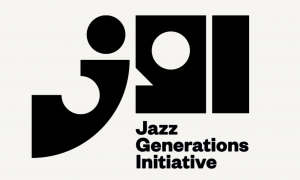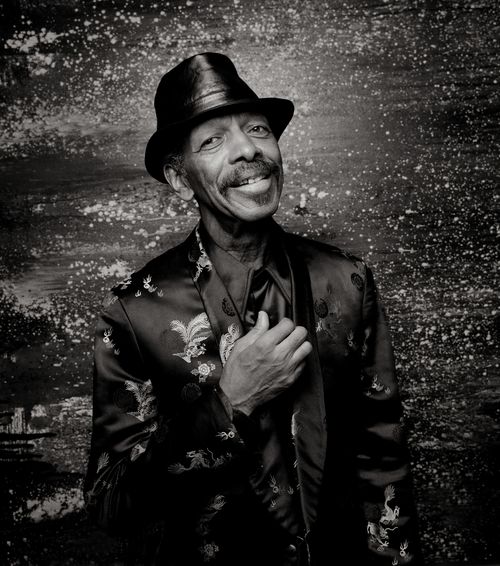
On Friday, the Wall Street Journal's Arts in Review editor asked me for a career essay on Ornette Coleman, who died on June 11 at age 85 (go here). So I spent the weekend listening to Coleman's albums—both of the Contemporary releases, all of the Atlantic recordings as well as his celebrated works over the decades.
My conclusion is that for too long, Coleman has been a misunderstood and maligned figure whose music has been viewed politely by jazz traditionalists as gibberish. Many jazz fans have viewed him as a limited musician with a sour tone who pulled the wool over the eyes of critics too afraid to slam what they didn't understand.
The truth is Coleman had a vision for where jazz should head next and he boldly created a new style that had little in common with the past. He also didn't care what people thought about what he was doing. He never explained his music or apologized for it. Admittedly, his music is tougher to listen to than most forms of jazz that thrive on melody, harmony and chord progressions. The ear likes those things. But his music isn't in a foreign language. You just need to listen a little harder and think about it while you're doing so.
Rather than view Coleman's music as a jumble that your ears can't handle, think in advance about making an effort to find the aesthetic quality. Start with Something Else!!!! for the Contemporary label in 1958. Then go to The Shape of Jazz to Come in 1959 and This Is Our Music in 1961. One of my favorites is Free Jazz (1961) and Ornette on Tenor (1962). I love the action-painting quality of the music, which more vividly reflects the artists' emotions than his or her ability to capture life images.
You need to enter the music understanding that there is beauty and grace in chaos, that while what you're hearing may not immediately seem cohesive or pretty, it is startlingly creative and requires energy, purpose, confidence and a passion for freedom. If you listen to Coleman's music this way, you will begin to find that grace, and each listen becomes a different ride.
As we all know, it's easy to diminish what we don't immediately understand. We all do it, and we do it all the time. We do it partly to save ourselves time. If we consumed everything and anything, we wouldn't get very far each day. So we rule out experiences by telling ourselves those experiences don't have merit. If you've done this with Coleman's music in the past, I only ask that you put yourself in his shoes—an artist who was fed up with commercial interests dictating expression and who yearned for a new improvisation space where how one feels at the moment of creativity can be articulated outside of traditional frames.
As Sonny Rollins said last week during my interview with him on Coleman's passing:
“Back then, when musicians were questioning whether Ornette was authentic—whether he was truly inside the music—Coltrane heard him play and said he was authentic. When I first heard him on Something Else!!!!, I said to myself, ‘Hey, that’s good.’ To me he was carrying on the improvisational tradition of Charlie Parker. But he wasn’t only that. His heart and spirit were in there, and that was important.”
Admittedly, Coleman's music takes some getting used to, just as anything new requires new sensations of taste, feel, thought and conditioning. Just let the fractured music wash over you and listen carefully to Coleman's horn and where it goes. You don't have to listen to everything he has recorded or even entire albums. And you don't have to listen to only Coleman (Ellington, Kenton, Getz and Baker are cool). Just listen long enough to Coleman until you start to feel as if you understand where he's coming from. Don't judge; just listen.
JazzWax tracks: Here's Invisible from Coleman's Something Else!!!!...
Here's Free Jazz in its entirety...
Here's Ornette on Tenor...
And here's Jordan from Coleman's Sound Grammar, for which he won a Pulitzer Prize in 2007...
JazzWax note: For a superb interview with Coleman, dig Jacques Derrida's interview in 1997 here.
My conclusion is that for too long, Coleman has been a misunderstood and maligned figure whose music has been viewed politely by jazz traditionalists as gibberish. Many jazz fans have viewed him as a limited musician with a sour tone who pulled the wool over the eyes of critics too afraid to slam what they didn't understand.
The truth is Coleman had a vision for where jazz should head next and he boldly created a new style that had little in common with the past. He also didn't care what people thought about what he was doing. He never explained his music or apologized for it. Admittedly, his music is tougher to listen to than most forms of jazz that thrive on melody, harmony and chord progressions. The ear likes those things. But his music isn't in a foreign language. You just need to listen a little harder and think about it while you're doing so.
Rather than view Coleman's music as a jumble that your ears can't handle, think in advance about making an effort to find the aesthetic quality. Start with Something Else!!!! for the Contemporary label in 1958. Then go to The Shape of Jazz to Come in 1959 and This Is Our Music in 1961. One of my favorites is Free Jazz (1961) and Ornette on Tenor (1962). I love the action-painting quality of the music, which more vividly reflects the artists' emotions than his or her ability to capture life images.
You need to enter the music understanding that there is beauty and grace in chaos, that while what you're hearing may not immediately seem cohesive or pretty, it is startlingly creative and requires energy, purpose, confidence and a passion for freedom. If you listen to Coleman's music this way, you will begin to find that grace, and each listen becomes a different ride.
As we all know, it's easy to diminish what we don't immediately understand. We all do it, and we do it all the time. We do it partly to save ourselves time. If we consumed everything and anything, we wouldn't get very far each day. So we rule out experiences by telling ourselves those experiences don't have merit. If you've done this with Coleman's music in the past, I only ask that you put yourself in his shoes—an artist who was fed up with commercial interests dictating expression and who yearned for a new improvisation space where how one feels at the moment of creativity can be articulated outside of traditional frames.
As Sonny Rollins said last week during my interview with him on Coleman's passing:
“Back then, when musicians were questioning whether Ornette was authentic—whether he was truly inside the music—Coltrane heard him play and said he was authentic. When I first heard him on Something Else!!!!, I said to myself, ‘Hey, that’s good.’ To me he was carrying on the improvisational tradition of Charlie Parker. But he wasn’t only that. His heart and spirit were in there, and that was important.”
Admittedly, Coleman's music takes some getting used to, just as anything new requires new sensations of taste, feel, thought and conditioning. Just let the fractured music wash over you and listen carefully to Coleman's horn and where it goes. You don't have to listen to everything he has recorded or even entire albums. And you don't have to listen to only Coleman (Ellington, Kenton, Getz and Baker are cool). Just listen long enough to Coleman until you start to feel as if you understand where he's coming from. Don't judge; just listen.
JazzWax tracks: Here's Invisible from Coleman's Something Else!!!!...
Here's Free Jazz in its entirety...
Here's Ornette on Tenor...
And here's Jordan from Coleman's Sound Grammar, for which he won a Pulitzer Prize in 2007...
JazzWax note: For a superb interview with Coleman, dig Jacques Derrida's interview in 1997 here.
This story appears courtesy of JazzWax by Marc Myers.
Copyright © 2025. All rights reserved.














